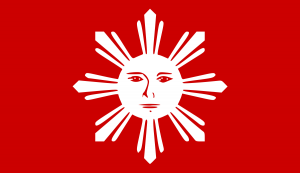Language/Tagalog/Culture/Filipino-Diaspora-and-Globalization
As a Tagalog language teacher with over 20 years of experience, I believe it is important for students to not only learn the language, but also the culture and history behind it. In this lesson, we will explore the impact of migration and globalization on the Filipino diaspora and its culture, identity, and literature. By understanding these concepts, we can gain insight into the Filipino experience and better appreciate the beauty and richness of Tagalog language and culture.
With the completion of this lesson, consider investigating these related pages: Current Events and Social Issues & Filipino Folklore and Mythology.
Migration and Globalization
Filipino migration and globalization have greatly affected the cultural landscape of the Philippines and its people. The diaspora has led to the spread of Filipino culture and traditions around the world, as well as the creation of new cultural identities and experiences. At the same time, globalization has led to a blending of cultures and the emergence of new forms of art and expression.
One of the most significant impacts of migration and globalization is the emergence of a hybrid culture that reflects both Filipino and foreign influences. For example, in the United States, many Filipino Americans have adopted a bicultural identity that combines elements of Filipino and American culture. This hybrid identity is reflected in the food they eat, the music they listen to, and the way they interact with others.
Filipino Diaspora and Identity
The Filipino diaspora has also led to the emergence of new forms of identity and belonging. As Filipinos have migrated around the world, they have had to navigate different cultural contexts and negotiate their sense of belonging in new communities. This has led to the creation of new forms of identity, such as "Filipino American" or "Filipino Australian", that reflect the unique experiences and perspectives of Filipinos in different parts of the world.
At the same time, the diaspora has also led to a rediscovery and reconnection with Filipino identity and culture. As Filipinos have settled in new communities and created new cultural identities, they have also sought to reconnect with their roots and traditions. This has led to a resurgence of interest in Filipino culture and literature, both within the Philippines and around the world.
Filipino Literature and the Diaspora
Filipino literature has also been greatly impacted by the Filipino diaspora and globalization. As Filipinos have migrated around the world, they have brought their stories and experiences with them, creating a wealth of literature that explores the complexities of the Filipino experience.
One example of this literature is the "Filipino diaspora novel", which explores the experiences of Filipinos who have migrated to other countries. These novels often focus on the challenges and opportunities faced by Filipinos in a foreign land, as well as their efforts to maintain their cultural identity and connection to their homeland.
Another example is the emergence of "diasporic poets", who use poetry to explore the themes of migration, identity, and belonging. These poets often draw on their own experiences and struggles to create powerful and moving works of art that speak to the Filipino experience around the world.
Tagalog Vocabulary
To better understand the impact of migration and globalization on the Filipino diaspora, it is important to learn the relevant vocabulary in Tagalog. Here are some examples:
| Tagalog | Pronunciation | English |
|---|---|---|
| diaspora | dee-ahs-poh-rah | diaspora |
| migration | my-grah-syon | migration |
| identity | eye-den-tee-dad | identity |
| belonging | bee-long-ing | belonging |
| novel | noh-bel | novel |
| poetry | poe-et-tree | poetry |
| culture | kul-tuhr | culture |
| tradition | truh-dish-yon | tradition |
| cuisine | kwi-zin | cuisine |
| hybrid | hahy-brid | hybrid |
| bicultural | bahy-kuhl-chuh-ral | bicultural |
Overall, the impact of migration and globalization on the Filipino diaspora and its culture, identity, and literature is complex and multifaceted. By learning about these concepts, we can gain a deeper appreciation for the Filipino experience and the unique contributions that Filipinos have made to the world. So let us continue to study Tagalog language and culture, and explore the rich history and diversity of the Filipino people.
Other Lessons
- Current Events and Social Issues
- Filipino Arts and Crafts
- Filipino Customs and Traditions
- Filipino Film and Pop Culture
- Philippines Timeline
- Filipino Cuisine
- Filipino Folklore and Mythology
- Filipino History and Geography

